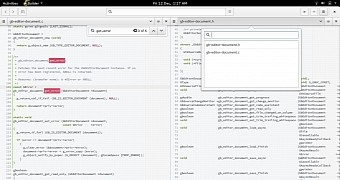Key Points
- Canonical Kubernetes now supports FIPS mode, enabling the creation of high-security Kubernetes clusters suitable for Federal deployments.
- FIPS 140-3 crypto and DISA-STIG hardening are available in the latest version of Canonical Kubernetes, version 1.34, providing a secure and compliant environment for sensitive applications.
- Ubuntu users can deploy a scalable and secure Kubernetes cluster using Canonical Kubernetes, with comprehensive documentation and support for DISA-STIG standards.
As a tech journalist reporting on Ubuntu news, I’m excited to share the latest developments from Canonical, the publisher of Ubuntu. At KubeCon North America, Canonical announced a major update to its Kubernetes distribution, Canonical Kubernetes, which now supports FIPS mode. This means that users can deploy a FedRAMP-ready Kubernetes cluster and application suite, complete with FIPS 140-3 crypto and DISA-STIG hardening.
For those who may not be familiar, FIPS stands for Federal Information Processing Standards, which are a set of standards for security and encryption used by the US government. FIPS 140-3 is the latest version of these standards, which provides a higher level of security and encryption for sensitive data. DISA-STIG stands for Defense Information Systems Agency Security Technical Implementation Guide, which provides a set of guidelines for securing systems and applications.
The latest version of Canonical Kubernetes, version 1.34, includes a built-in FIPS 140-3 capability that uses certified cryptographic modules. This means that users can easily create and manage a scalable cluster that meets the highest security standards. Additionally, the deployment can be easily hardened to DISA-STIG standards using comprehensive documentation, making it suitable for high-security or Federal deployments.
Canonical Kubernetes is a performant, lightweight, and securely designed CNCF-conformant distribution of Kubernetes. It provides everything needed for a fully functioning cluster, including a range of tools and features to support deployment, management, and scaling. With the addition of FIPS mode, Canonical Kubernetes is now an even more attractive option for organizations that require high-security and compliance.
Ubuntu users will be pleased to know that they can deploy a scalable and secure Kubernetes cluster using Canonical Kubernetes, with comprehensive documentation and support for DISA-STIG standards. This makes it an ideal choice for organizations that require a high level of security and compliance, such as government agencies, financial institutions, and healthcare organizations.
The release of FIPS-enabled Canonical Kubernetes is a significant development for the Ubuntu and Kubernetes communities. It demonstrates Canonical’s commitment to providing secure and compliant solutions for its users, and its ability to meet the highest security standards. As the use of Kubernetes continues to grow, the need for secure and compliant solutions will only increase, making Canonical Kubernetes an attractive option for organizations that require a high level of security and reliability.
To learn more about FIPS-enabled Canonical Kubernetes, attendees at KubeCon North America can visit booth 821, where Canonical will be showcasing its latest technology. With the release of FIPS-enabled Canonical Kubernetes, Ubuntu users can now deploy a scalable and secure Kubernetes cluster that meets the highest security standards, making it an ideal choice for organizations that require a high level of security and compliance.
Upgrade your life with the Linux Courses on Udemy, Edureka Linux courses & edX Linux courses. All the courses come with certificates.








